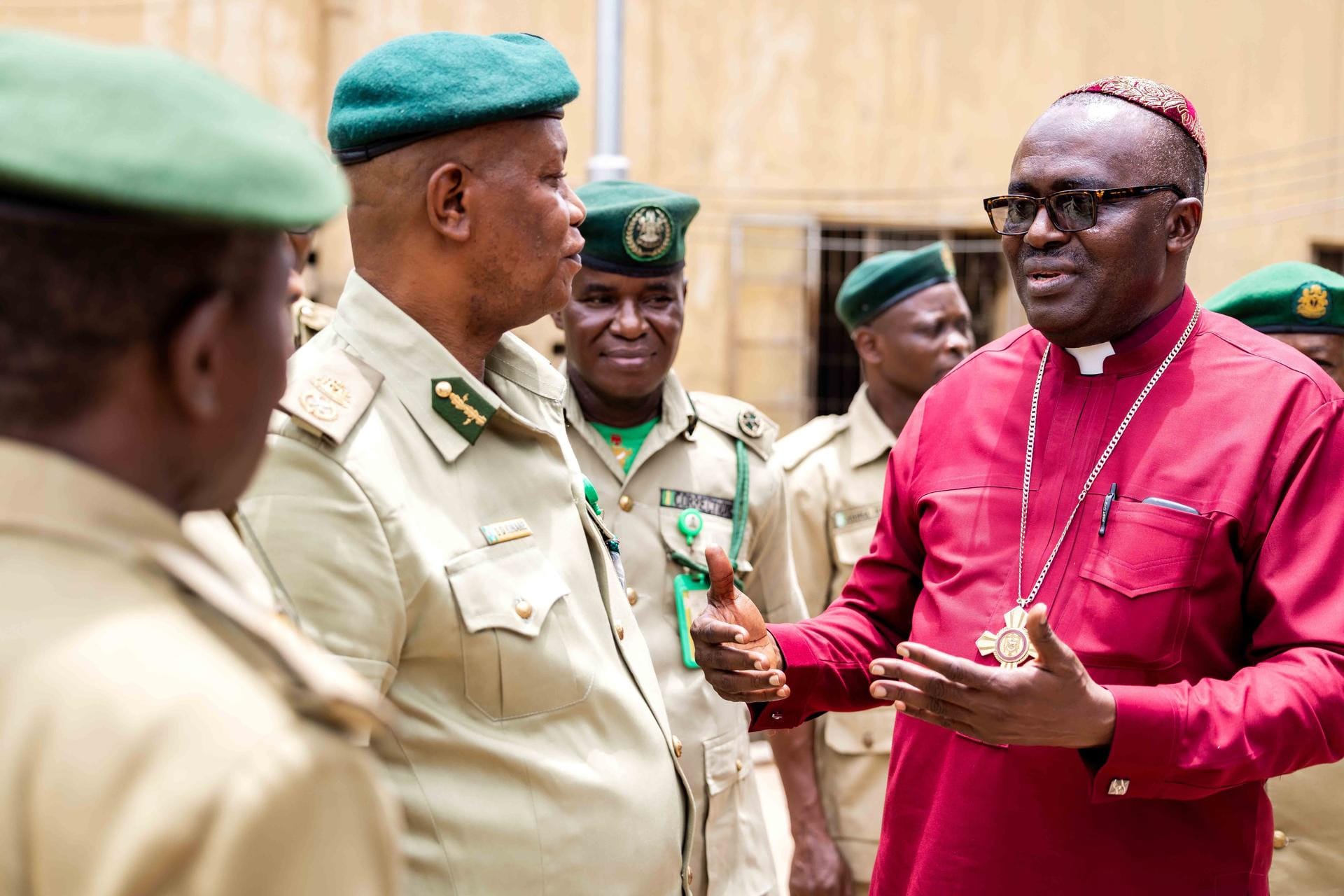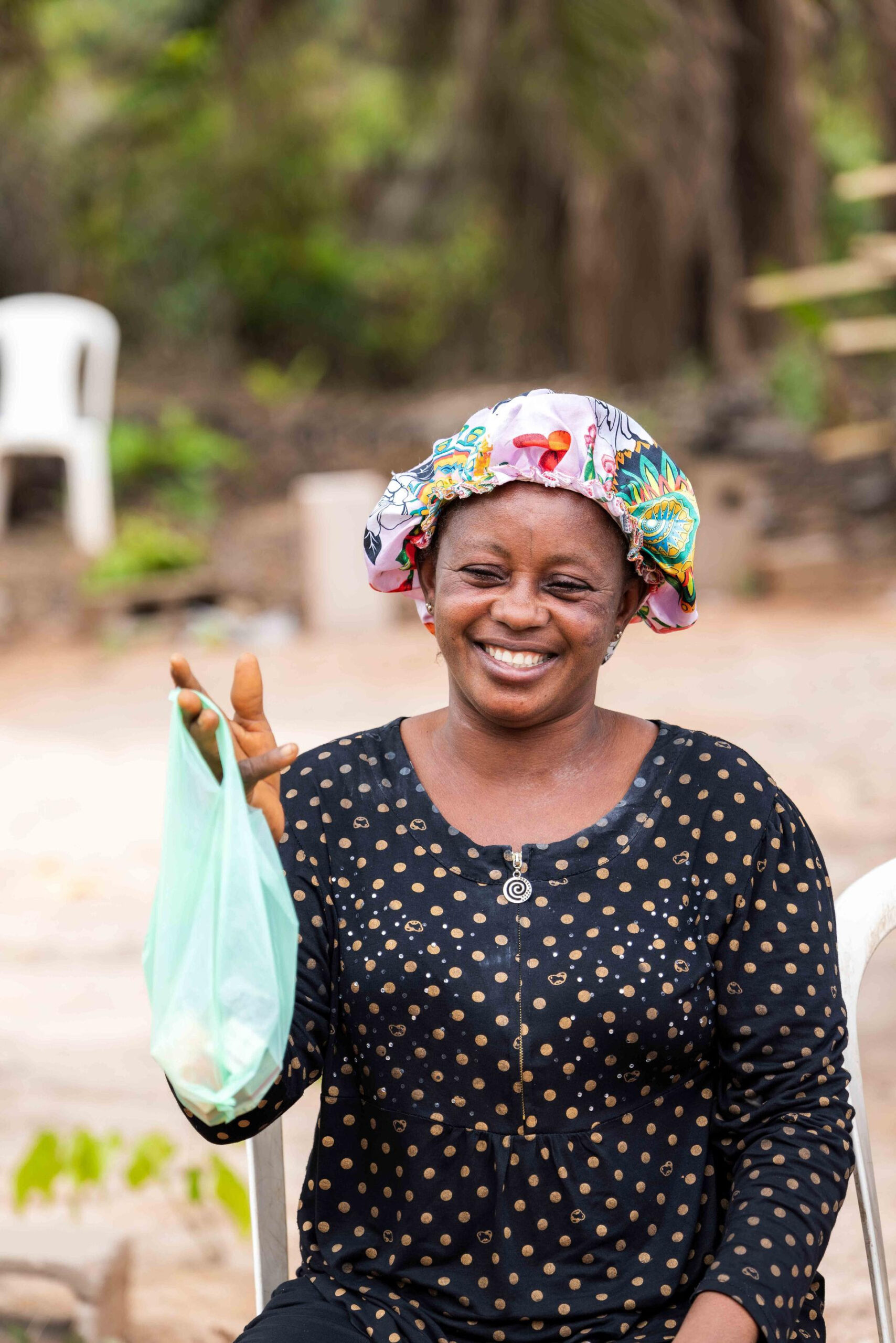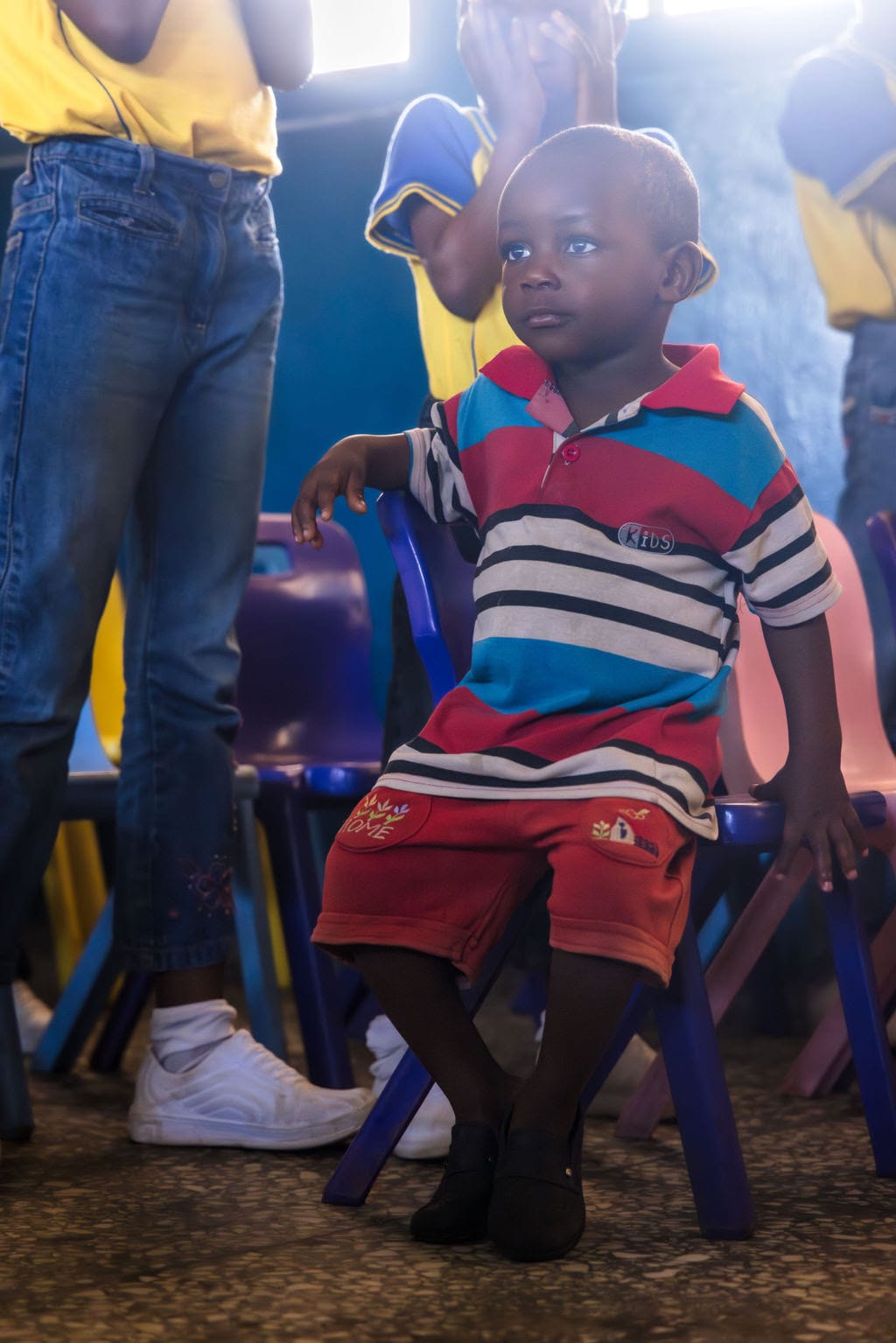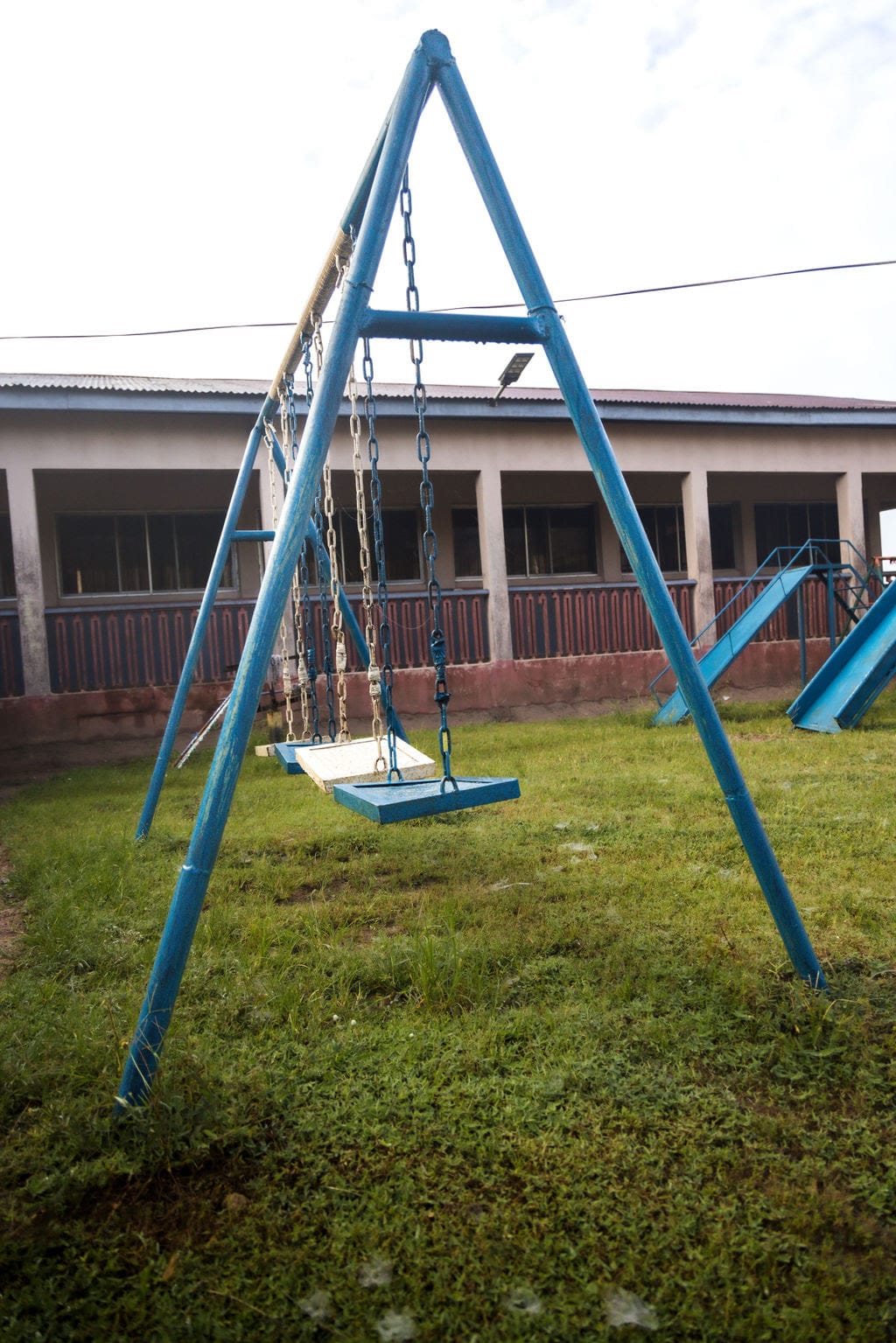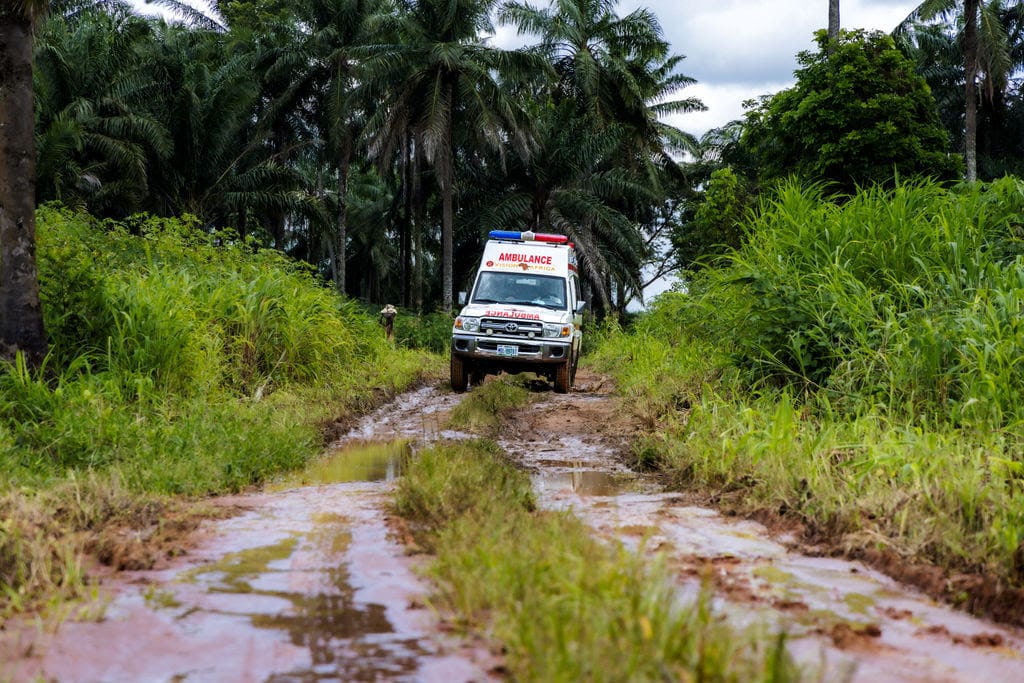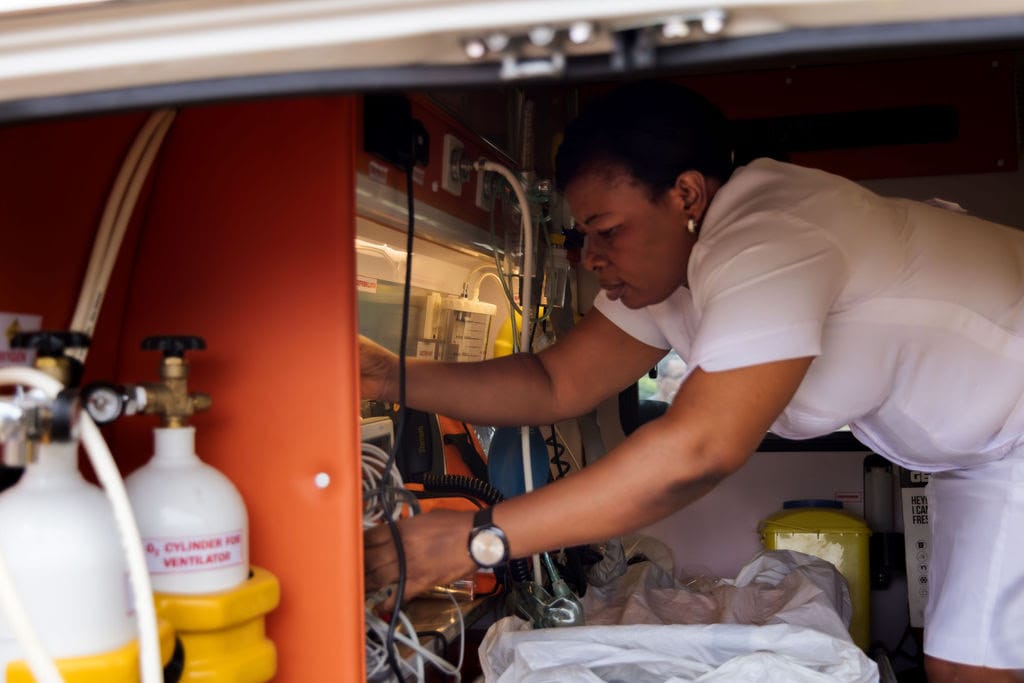*In lists or descriptions of the various arms of Vision Africa’s ministries, you might regularly encounter the phrase “care for the forgotten.” It’s a mission we take very seriously at Vision Africa, but one that doesn’t get the spotlight as often. So, this month we are shining a light on what “care for the forgotten” means, entails, and looks like on the ground in Nigeria. Have you ever heard the old saying “out of sight, out mind”? It can apply to physical items that get tucked away and thus forgotten, but it all too often applies to people as well—inmates who languish in prisons, their cases stalled under a paperwork tangle, children growing up in group homes, lost to family members, the homeless population, thrown away, confused, and shunned by society, or the inhabitants of remote villages, living without medical care and access to technology and communication. Too often, these populations exist in society’s shadow, hidden away, unseen because we don’t want to see, their problems forgotten because they seem too overwhelming to address. These are the people to whom Vision Africa wants to say, “God sees you; God loves you, and God has sent us to serve you however we can.” Prisons in Nigeria are government-owned and operated. However, they are also burdened with overcrowding, a paperwork backlog, and a slow-moving, understaffed judicial process. Inmates relate stories of being imprisoned for five years before even seeing a judge, being held five more years after their preliminary hearing, and standing accused of crimes of which they have no knowledge. It is into this wide breach that Vision Africa wades with the hope of relieving suffering in ways both small and large. The most expedient means of support to prisoners is provision of items they say they need most, especially mattresses and food. This past December, Vision Africa delivered bread and other stable foodstuffs to the Umuahia prison as well as sanitary pads for females. In addition, Vision Africa volunteers also teach and tutor at the prison, helping inmates complete degrees through university. Educational materials and supplies are also provided. Many inmates have become graduates while in prison, and some have even found jobs with or through Vision Africa following their incarceration. After visiting the prisoners and hearing their stories, Vision Africa sometimes steps in as an advocate, providing qualified legal advice or intervention where appropriate and God-led. Recently, VA Chief Operating Officer and attorney-at-law Sarafina Nwokenta spoke with a young woman who had received the death penalty for murder, without knowing whom she is accused of killing or any specifics of the crime. VA is now assisting with her appeal. In addition to a large prison population, Nigeria reportedly has the largest homeless population in the world, due to rapid population growth, poverty, and displacement from natural disasters and terrorism. An article in Sage Journals, a New York-based academic publishing and research company, reports that over 300,000 Nigerians have been displaced by flooding while more than 2 million are homeless due to terrorism. Many of these are orphaned children and youths living under bridges and in railway stations and markets. They often fear the uncertainty of orphanages and being prevented from searching for lost family members. Vision Africa ministers to these youths by engaging them in street games of soccer with the Waves football team. Through the common language of sports, the Waves players connect with young people, learn their needs, and share the good news of God’s love. Occasionally, some are recruited to become Waves team members. In this way, they are also able to minister to physical needs for food and clothing. According to a 2023 report from the World Bank, over 45 percent of Nigerians live in rural areas, most of which can be defined as “remote” because of lack of any roads and limited or no access to modern amenities and communication. Vision Africa seeks to remember these hidden lives by taking medical care to areas sometimes not even accessible by bicycle. Caregivers come in on foot, bringing villagers a safe haven of medical care, medicines, and evaluations. Where primary care is not adequate, Vision Africa frequently arranges transport to referral hospitals for higher levels of care, often covering those bills as well. “You have to have a passion for this work to do it passionately,” said Metron Ego Onyeukwu, a nurse who has worked with VA for over 25 years. “But Vision Africa really values the people who do the outreach, and that’s why we keep coming back.” As the day approaches when we can open the doors of the Agnes Onuoha Memorial Hospital, we look forward to welcoming the thousands of patients who will make their way to us. Until then, we will continue to bring care to as many as possible. Finally, “care for the forgotten” includes the children who make their way to or are dropped off at orphanages and motherless baby homes. Many have suffered great trauma already in their young lives, losing mothers to childbirth or even whole families to violence or natural disaster. To these innocent young lives, VA shares God’s love through food, formula, diapers, clothing, toys, books, facility repair, and other provisions as requested. Volunteers offer that extra hug, bit of individual attention, prayer, or rocking that remind these children that they are loved and seen by God, right down to the number of hairs on their heads. If God is calling you to help us say “We remember you…and we care,” click on the Donate button below and mark your donation in the comments section for “Care for the Forgotten.” |
